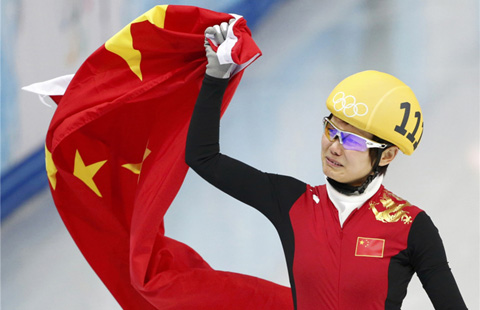Rural reform needs science input
Updated: 2014-02-14 00:36
By Cheng Yingqi (China Daily)
|
||||||||
Ministry encourages researchers to become agricultural entrepreneurs
China will develop a market-oriented and commercialized seed industry and create a better policy environment to encourage scientists' input in the sector, a senior official said.
Zhang Laiwu, vice-minister of science and technology, explained the ministry's plan to deepen reform of the agricultural sci-tech system and promote rural entrepreneurship at a news conference on Thursday.
Highlighting the importance of modernization in the seed industry, Zhang said, "China has a large seed industry, but it is both dispersed and weak compared to the world's most powerful seed businesses.
"The key is to build a commercialized seed industry in China, which will require a whole new set of institutional arrangements," he said.
The systematic commercialization of China's seed industry not only requires reform of the industry's overall layout and regional distribution, but should also bring scientific research and the seed industry closer to increase the Chinese seed industry's market competence, he said.
The ministry has adopted a series of reforms since 2012, including allocating 1.6 billion yuan ($263.8 million) to 25 national seed-industry-related projects, encouraging businesses to breed 535 varieties of high-yield and disease-resistant plants and expanding the plantation of those fine varieties to 23.33 million hectares.
But many of China's breeding companies are still too small to lead the market, and most of the new breeding technologies remain at an experimental stage in universities or research laboratories, with their commercialization taking at least 10 to 15 years, according to earlier media reports.
A plant researcher, named Xu, who was unable to give his full name due to the media regulations of the institute he works for, said that the current policies indirectly discourage the commercialization of research findings.
Research institutes usually attach more importance to a research project's early work, such as publishing theses or seeking patents. Though researchers are later required to help businesses use the findings to produce seeds, the researchers were often unable to spend years working with the companies.
"There is no consensus on how to divide the earnings and responsibilities among researchers, their institutes and the companies," he said, which makes institutes reluctant to let their researchers help businesses, a process which may last several years.
Zhang, the vice-minister, said that a trusteeship system and a trading system will be established to accelerate the commercialization of research findings. But he did not elaborate on details.
The ministry will provide more favorable policies to support science and technology specialists to become agricultural entrepreneurs.
At a national level, the Ministry of Science and Technology has encouraged scientific researchers to become "professional farmers" since 2009. Between 2009 and September 2013, 720,000 such specialists moved to rural areas, he said.
These experts are expected to use their knowledge of breeding and the market, as well as government policies in land leasing and finance, to help farmers benefit from China's agricultural modernization.
China has carried out pilot programs on land banks, which allow the specialists to lease farmers' land for intensive farming, and to share the profits with the farmers, he said.
Most Viewed
Editor's Picks

|

|

|

|

|

|
Today's Top News
Kerry's visit bodes well for China-US ties
China underscores Maritime Silk Road co-op
A holiday that’s red-hot for lovers and retailers
Plan drafted for $36b undersea tunnel
Rural reform needs science input
Service gives hope to bereaved parents
China's IPOs raise nearly $5 billion
Hungary unlikely to join the eurozone soon
US Weekly

|

|













